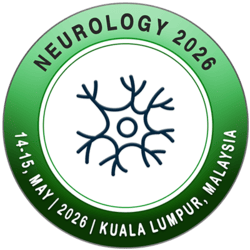Track: Behavioral and Cognitive Neuroscience

Session Overview:
The "Behavioral and Cognitive Neuroscience" session will delve into the latest advancements in understanding behavior and cognitive processes through a neuroscience lens. We will explore how neural mechanisms underpin various aspects of behavior, including emotional responses, decision-making, and cognitive functions such as memory and attention. By examining recent research in neuroimaging, electrophysiology, and computational neuroscience, we aim to shed light on the complex interplay between brain activity and psychological states. Attendees will engage with cutting-edge studies that reveal how neural networks and brain regions contribute to cognitive processes and behavioral outcomes. The session will also cover innovative clinical applications, such as novel therapeutic approaches and interventions informed by recent scientific breakthroughs. By bridging theoretical research with practical applications, we will provide a comprehensive overview of current developments, offering valuable insights for both researchers and practitioners in behavioral and cognitive neuroscience.
Recent Developments:
Recent advancements in behavioral and cognitive neuroscience include longitudinal studies tracking cognitive decline, which provide insights into early biomarkers of neurodegenerative diseases and their progression. Clinical trials have shown that new behavioral therapies and cognitive training programs are effective for conditions like ADHD, depression, and anxiety. Innovations such as high-resolution fMRI and PET scans offer more detailed views of brain activity, while wearable neurotechnology enables real-time monitoring of cognitive states. Additionally, new research into neuroplasticity reveals how the brain reorganizes in response to learning and environmental changes, and discoveries in brain connectivity enhance understanding of complex cognitive functions and conditions like schizophrenia and autism. These developments collectively advance our comprehension of neural mechanisms influencing behavior and cognition, leading to more effective treatments and interventions.
Sub-Tracks:
Neural Mechanisms of Cognition
Explore how brain structures and networks support cognitive processes like memory, attention, and decision-making, focusing on the neural basis of these functions and their disruptions in neurological disorders.
Behavioral Interventions and Therapies
Examine the development and effectiveness of behavioral and cognitive therapies for mental health conditions, including techniques for modifying behavior and improving cognitive function through targeted interventions.
Neuroplasticity and Learning
Investigate how the brain adapts and reorganizes itself in response to learning and experience, highlighting mechanisms of neuroplasticity and their implications for cognitive rehabilitation and enhancement.
Neuroimaging and Brain MappingUtilize advanced neuroimaging techniques, such as fMRI and PET scans, to map brain activity and connectivity, providing insights into how different brain regions collaborate to support cognitive functions.
Cognitive Disorders and Dysfunction
Focus on the neural and behavioral aspects of cognitive disorders, such as schizophrenia and autism, examining how disruptions in brain function lead to specific cognitive and behavioral symptoms.
Executive Function and Decision Making
Examines the neural basis of high-level cognitive processes such as planning, problem-solving, and decision-making, and their impact on behavior.
Emotional and Social Cognition
Focuses on how emotions and social interactions influence cognitive processes, including the neural circuits involved in empathy, social reasoning, and emotional regulation.
Attention and Perception
Investigates how attention mechanisms affect perceptual processes and how these mechanisms are represented in the brain.
Memory Systems and Processes
Explores different types of memory (e.g., episodic, working) and their underlying neural substrates, as well as mechanisms of memory encoding, consolidation, and retrieval.
Developmental and Lifespan Changes
Looks at how cognitive and behavioral processes develop across the lifespan, including changes in neural mechanisms from childhood through aging.
Scientific Highlights
- Neurology
- Neuro Anatomy
- Mental Health and Psychiatry
- Geriatric Neurological Disorders
- Neuromuscular Diseases
- Brain Tumor and Neuro-oncology
- Cerebrovascular and Critical Care Neurology
- Clinical Neurophysiology
- Central Nervous System
- Neuro-Ophthalmology
- Pediatric Neurology
- Neuroimaging and Brain Mapping
- Neurogenetics and Neurodegenerative Disease
- Behavioral and Cognitive Neuroscience
- Neurochemistry and Neuropharmacology
- Spinal Neurosurgery and Neural Transplantation
- Neuro Robotics and Neuro Modulators
- Addiction and Adult Psychology
- Brain Stimulation and Computational Neuroscience
- Neural Control of Micturition
- Parkinson's Disease


